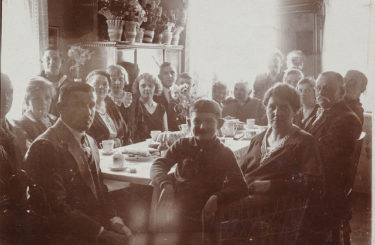We forget a lot. But what’s the big deal? In a family context, remembering stories means building your family’s collective memory. This of inestimable value, especially for the next generation. Read from our collection of telling family stories.
Want an easy structure for telling family stories? Think IRS:
Intriguing beginning
Riveting middle
Satisfying ending
Here's an annotated example to walk you through how to use IRS.
Better Every Story
Leadership Transformation through Storytelling
"This is an amazing and insightful post! I hadn’t thought of that so you broadened my perspective. I always appreciate your insight!" - Dan B.
Get Esther Choy’s insights, best practices and examples of great storytelling to your inbox each month.
Curated Resources for Telling Family Stories.
We have helped family businesses tell their stories, and would love to help you as well. Connect with us to capture your stories.
How family storytelling positively affects children and teens: advanced narrative skills, higher self esteem, better coping skills, lower anxiety. Parents shouldn't sanitize stories for their children -- just tell it like it was.
From a Christian perspective, but a general audience will also appreciate its tips about preserving family heritage through story. The last section of the article lists ways to put your story together: interviewing relatives (or asking them to write their memories), a video camera at family gatherings, create a collection of the family's favorite things, a family scrapbook, and keeping a journal.
Tell grandkids: how you met your partner in grandparenting, the day the grandchild's parent was born, the day the grandchild was born, what school was like for you, your first job and your favorite job, your proudest moment.
Ways for seniors to pass on their stories and heritage to younger family members: collect family recipes, make an audio/video recording, make a family tree, make a family time capsule, write out favorite memories, or dedicate a tree/bench (not sure this one really applies).
Interesting article about how the way we tell ourselves our own stories shapes who we are. Heavy on the idea that all of life is story and how the brain is wired for story (not necessarily how stories are passed down through the generations).
A study about the public vs. private stories family tell and how they go about it. Most families focus on positive stories that make them seem pro-social and happy, with negative stories showing how the family has overcome.
A study about how the way families tell stories can help them heal when dealing with trauma.
Examples of how being candid with your kids can give you an avenue to talk to them about your own experiences when you demonstrated (or didn't demonstrate) a particular character trait, like courage.
"The more children knew about their family’s history, the stronger their sense of control over their lives, the higher their self-esteem and the more successfully they believed their families functioned."
The everystory app incorporates photo, video, and audio narration to tell family stories.
The stories etc app creates what is essentially an interactive e-book with audio, video, photo, narration, and text.
StoryCorps app
A helpful app created by this celebrated non-profit, StoryCorps, which is often linked with NPR, but has so much more to offer than its weekly syndicated snippets. The app is simple to use, comes with many great questions to ask your loved ones. Choose whether or not to archive the interview in the library of congress.
Whether you consider yourself a storyteller, whether you plan to tell stories, you already tell stories all the time. The only sensible question is, “How do I take full advantage of this very essence of being human so I better myself, my family and my community?”
Whether you consider yourself a storyteller, whether you plan to tell stories, you already tell stories all the time. The only sensible question is, “How do I take full advantage of this very essence of being human so I better myself, my family and my community?”
When we bring up the past, the selection of stories is intentional: there's something we want to highlight that we want others to remember and repeat. So, when my daughters fight as siblings inevitably do, I can remind them of the time Melia was so thoughtful and protective of her older sister that she was willing to subject herself to the horror of staying in her room by herself (a frightful thing, apparently) if it meant her sister received comfort and reassurance. I can turn my daughters’ experience into a story that is shaping their identity, relationships and future.


